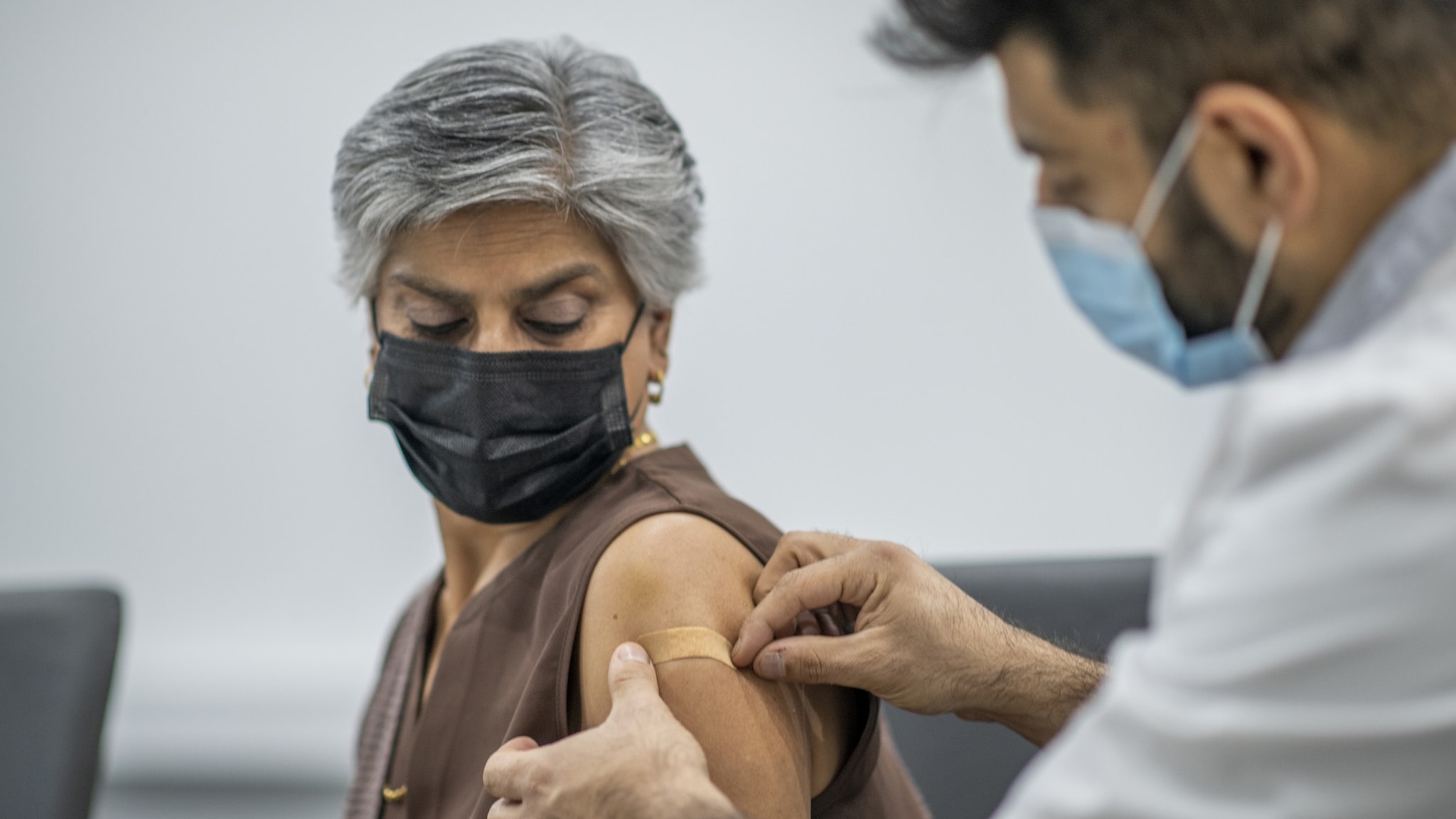Key points
- People with chronic kidney disease (CKD) have a higher risk of developing serious flu complications, which can result in hospitalization and even death.
- CKD weakens the immune system, making it harder to fight off infections like flu.
- Find out how to protect yourself from the flu.

Flu vaccines
A flu vaccine is the best protection against flu.
Flu vaccination is especially important for people with CKD because they're at high risk of developing serious flu complications. Vaccination every year is recommended for the best possible protection against flu. Flu vaccines are updated each season to protect against the flu viruses that research indicates will be most common during the upcoming season.
CDC recommends that everyone 6 months and older get a flu vaccine each year by the end of October. Immunity from vaccination sets in after about two weeks.
Flu vaccination has been shown to reduce the risk of getting sick with flu or reduce the severity of illness if a person does get sick. Some studies show that vaccinated people have lower risk of having a serious flu outcome like requiring a stay in the hospital, or even being admitted to the intensive care unit (ICU).
Among people with CKD, flu vaccination has been associated with reduced hospitalizations.
Flu vaccines for people with CKD
- Injectable influenza vaccines (flu shots) are recommended for everyone, but especially for people with CKD and other health conditions. The flu shot has a long, established safety record in people with CKD.
- The live attenuated influenza vaccine (LAIV), also known as the nasal spray vaccine, is not recommended for people with some kinds of chronic health conditions. The nasal spray vaccine is not recommended for people with CKD.
Other vaccines for people with CKD
Pneumococcal pneumonia is an example of a serious flu-related complication that can cause death. People with CKD should also be up to date with pneumococcal vaccination to protect against pneumococcal diseases. These include pneumonia, meningitis (swelling of the brain due to infection), and blood infections.
You can get either pneumococcal conjugate vaccine or pneumococcal polysaccharide vaccine (but not both). Talk to your doctor to find out which pneumococcal vaccines are recommended for you.
Talk with your doctor to make sure you're up to date on all your vaccines, including the hepatitis B vaccine.
Planning strategies
In addition to getting a flu shot, people with CKD should take everyday preventive actions. This includes avoiding people who are sick, covering coughs, and washing hands often.
Prepare in case you get sick
- People with chronic conditions like CKD should maintain a two-week supply of all regular medications during flu season.
- Talk to your doctor before stopping or adjusting any regular medications, especially if you become sick.
Flu symptoms
If you have flu symptoms, call your doctor right away. Antiviral drugs can treat flu illness and may prevent serious flu complications. CDC recommends flu treatment as soon as possible for people with the flu. It also recommends treatment for people with flu infection and who have a high risk of serious flu complications. This includes people with CKD.
Flu symptoms can include:
- Fever
- Cough
- Sore throat
- Runny or stuffy nose
- Body aches
- Headache
- Chills
- Fatigue
Some people may also have vomiting and diarrhea, though this is more common in children. People may be infected with flu and have respiratory symptoms without a fever.
Flu treatment
Treatment should begin as soon as possible. This is because antiviral drug treatment works best when started early (within 48 hours after symptoms start). Antiviral drugs require a prescription from a doctor. They may also prevent serious health problems that can result from flu illness.
When to seek emergency care
Anyone experiencing any of the following emergency warning signs of flu sickness, including people with CKD, should seek medical attention right away.
Symptoms in adults:
- Difficulty breathing or shortness of breath
- Persistent pain or pressure in the chest or abdomen
- Persistent dizziness, confusion, inability to arouse
- Seizures
- Not urinating
- Severe muscle pain
- Severe weakness or unsteadiness
- Fever or cough that improves but then returns or worsens
- Worsening of chronic medical conditions
Symptoms in children:
- Fast breathing or trouble breathing
- Bluish lips or face
- Ribs pulling in with each breath
- Chest pain
- Severe muscle pain (child refuses to walk)
- Dehydration (no urine for 8 hours, dry mouth, no tears when crying)
- Not alert or interacting when awake
- Seizures
- Fever above 104°F
- In children less than 12 weeks, any fever
- Fever or cough that improves but then returns or worsens
- Worsening of chronic medical conditions
